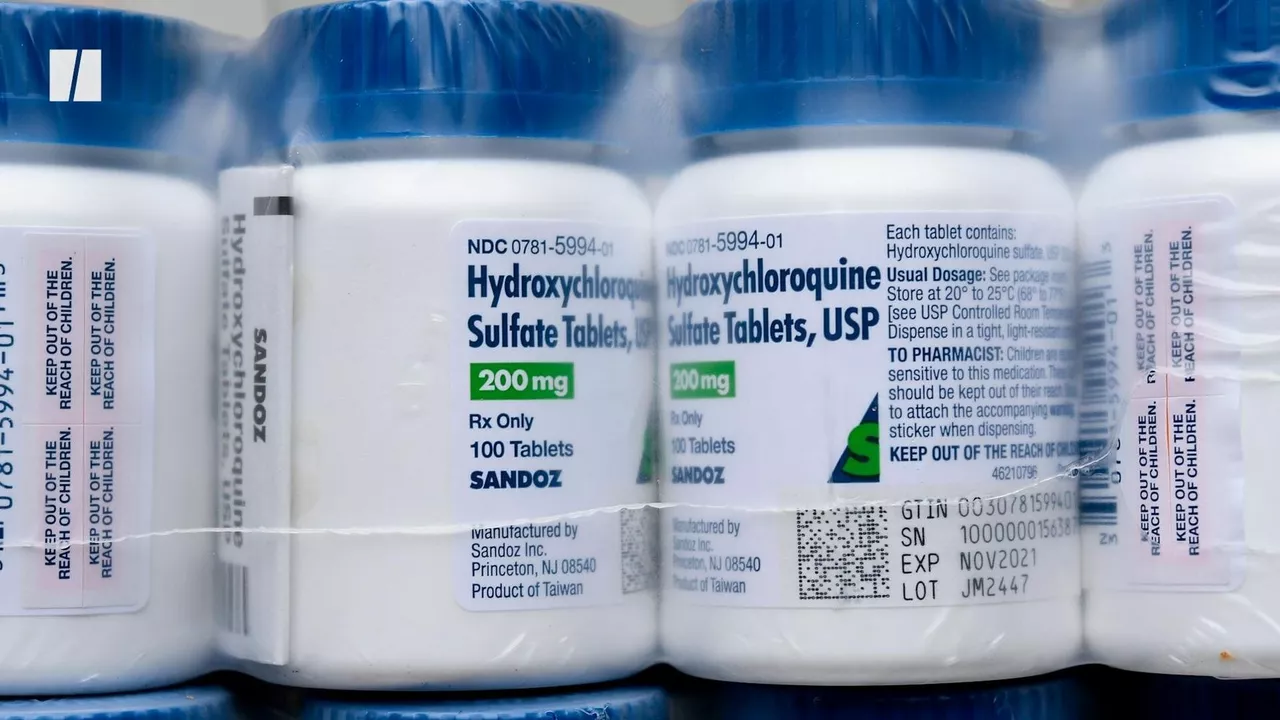
Overview of Hydroxychloroquine
Hydroxychloroquine, initially designed as an antimalarial drug, has been utilized in the treatment of various autoimmune diseases such as lupus and rheumatoid arthritis. It is a medication that has been trusted for its efficacy and safety for many years. However, like any other drug, it does not come without potential risks and side effects. We need to understand these risks to make an informed decision about its use.
Understanding the Liver and Its Functions
The liver, one of the largest organs in our body, plays a crucial role in numerous metabolic processes. It is involved in the detoxification of harmful substances, synthesis of proteins, and production of biochemicals necessary for digestion. Understanding the functions of the liver aids in comprehending the effects of hydroxychloroquine on this vital organ.
Hydroxychloroquine and Its Metabolism in the Liver
Hydroxychloroquine, like many other drugs, is metabolized in the liver. This process involves breaking down the drug into different substances (metabolites) that can be easily eliminated from the body. However, this metabolic process can also produce substances that can potentially harm the liver cells, leading to liver injury.
Potential Risks of Hydroxychloroquine on the Liver
The liver plays a significant role in the metabolism of hydroxychloroquine. In some cases, the use of this medication may result in liver damage or hepatotoxicity. This risk is usually low but can increase based on various factors including the dosage, the duration of therapy, and the patient's overall health condition.
Recognizing Signs of Liver Damage
Recognizing the signs of potential liver damage is crucial for early detection and treatment. Symptoms may include loss of appetite, nausea and vomiting, abdominal pain, jaundice (yellowing of the skin and eyes), and dark urine. If you are taking hydroxychloroquine and start to notice any of these symptoms, it's important to seek medical attention immediately.
Reducing the Risk: Monitoring and Regular Check-ups
To reduce the risk of liver damage, regular monitoring of liver function is necessary while on hydroxychloroquine. This often involves regular blood tests to check the levels of liver enzymes. If the enzyme levels are high, it may indicate liver damage. Regular check-ups with your healthcare provider allow for early detection and management of potential liver issues.
Alternatives to Hydroxychloroquine: Evaluating Your Options
If you are at a higher risk for liver damage, or if you have already experienced liver-related side effects from hydroxychloroquine, it may be necessary to consider alternative treatments. This should be done in consultation with your healthcare provider. There are several other medications available that can be effective in treating autoimmune diseases and have a lower risk of liver toxicity.
Comments (7)
-
pallabi banerjee July 12, 2023
Keeping an eye on liver health while taking hydroxychloroquine is a smart move. The medication is processed by the liver, so regular blood tests help spot any problems early. If you notice loss of appetite, nausea, or yellowing of the skin, let your doctor know right away. A simple check‑up every few months can give you peace of mind. Remember, staying informed protects both your treatment and your overall well‑being.
-
Alex EL Shaar July 12, 2023
Yo, the liver thing is real but a lotta ppl just ignore it, lol. I mean, if your docs don’t warn u, you might end up in a mess.
-
Anna Frerker July 12, 2023
In the U.S. we trust the FDA more than foreign hype.
-
Julius Smith July 12, 2023
💊💥 Stay sharp, folks! If you feel weird, get checked ASAP. 🚨
-
Brittaney Phelps July 12, 2023
Monitoring liver enzymes is easy and can save a lot of trouble later. Talk to your healthcare provider about the best schedule for tests. Staying proactive means you keep the benefits of the drug without the hidden risks.
-
Kim Nguyệt Lệ July 12, 2023
Hydroxychloroquine’s metabolism involves hepatic enzymes, which means the liver bears the primary workload. Regular liver function panels can detect elevations in ALT and AST before symptoms appear. It is advisable to baseline these values prior to initiating therapy. Subsequent monitoring at three‑month intervals is a reasonable schedule for most patients. Should abnormalities emerge, dose adjustment or an alternative treatment should be considered promptly. Patient education about warning signs, such as jaundice or dark urine, is essential. Consistent communication with the prescribing clinician ensures any issues are addressed without delay.
-
Rhonda Adams July 12, 2023
First off, let me say that taking control of your health is something to be proud of. 🌟 Knowing that hydroxychloroquine is processed by the liver gives you a clear target for monitoring. Start by asking your doctor for a baseline liver panel before you begin the medication. This sets a reference point that makes future changes easy to spot. Then, schedule follow‑up tests every three to six months; the exact timing can be personalized based on your dosage and overall health.
If any lab results creep upward, don’t panic-just bring it up with your healthcare team right away. They can decide whether to adjust the dose, add supportive supplements, or switch to an alternative drug. Remember, early detection of hepatotoxicity often means you can intervene before serious damage occurs.
Pay attention to subtle signs too. Fatigue, loss of appetite, or a slight yellow tint to your eyes can be early warnings. Keeping a symptom diary helps you and your doctor spot patterns that labs alone might miss.
In addition to lab work, maintain a liver‑friendly lifestyle: stay hydrated, limit alcohol, and eat a balanced diet rich in antioxidants. Regular exercise also supports liver health by improving metabolism.
Lastly, never feel alone in this process. Share your monitoring plan with a trusted friend or family member so they can remind you of appointments and encourage you to stay consistent. Your commitment, combined with professional guidance, creates a safety net that keeps the benefits of hydroxychloroquine while minimizing risks. Keep up the great work, and stay proactive! 😊
